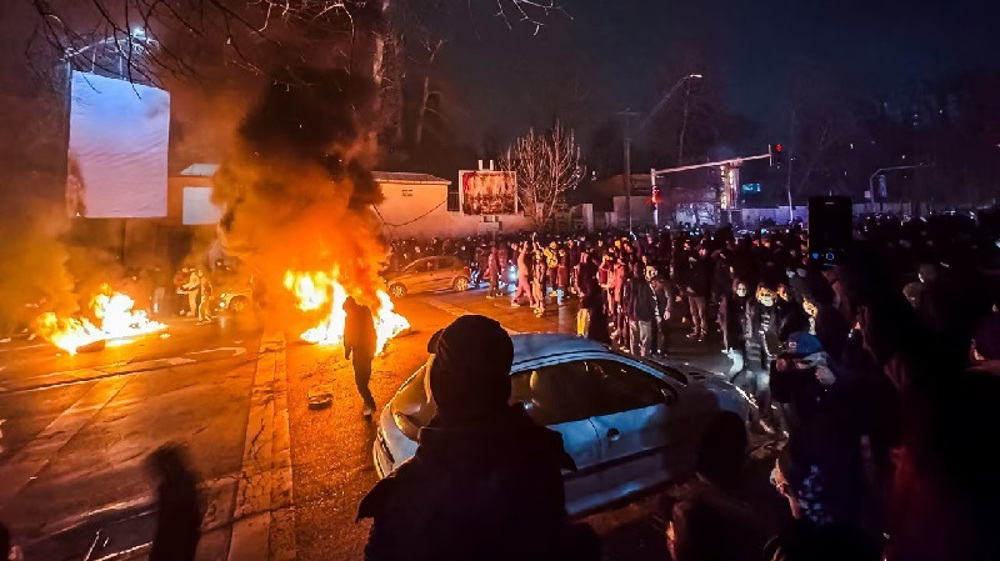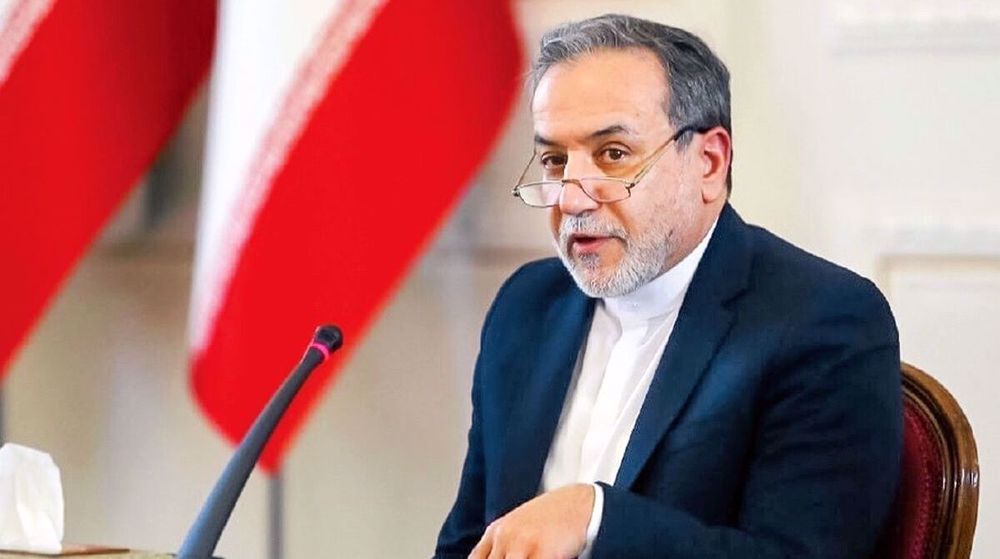Trump assassinated Iran’s Geberal Soleimani to create ‘diversion’ from impeachment
The US assassination of top Iranian anti-terror commander, Lieutenant General Qassem Soleimani, was perpetrated on the direct orders of Donald Trump to serve as a “diversion” for the American president, who is presently grappling with an impeachment inquiry, overshadowing the upcoming US presidential race and putting his re-election at stake, says a political analyst in New York.
Ian Williams, a senior analyst at Foreign Policy in Focus, made the remark in a Friday edition of Press TV’s The Debate program, while commenting on Iran’s retaliatory response to the US assassination of General Soleimani, and his Iraqi trenchmate, Abu Mahdi al-Muhandis, with a barrage of missiles that hit two American military bases in Iraq.
Iran defended its missile strikes on US bases in Iraq and described them as a slap in the face for the US, saying Tehran did not mean to kill American troops but to damage the US war machine.
Tehran, however, warned that the attack was only the start of a series of attacks that will take place across the entire region.
Iran also posits that the retaliation put across a strong message that US military forces should voluntarily withdraw from the region before being driven out by force.
“The missile attack on the American bases showed that the Iranian missiles were highly accurate, dodged all of the anti-missile weaponry and I think deliberately avoided US casualties so that Trump did not have an excuse to beat the war drums anymore… Everything is clear that it’s because of wisdom on the part of Tehran rather than anything that Trump did,” Williams told Press TV on Friday.
“This was a reprehensible, illegal act in international law. It was provocative, it was worse than a crime, it was a mistake and this is a severe mistake,” the political commentator said, referring to the US assassination of General Soleimani.
“This is because Trump is coming up, he has an election coming, and more to the point he has an impeachment coming and this is a wonderful diversion for him and he doesn’t care if people die for his political aims,” he added.
The impeachment inquiry was launched by the House Democrats in September after Trump reportedly tried to find dirt on Joe Biden, a leading contender for the 2020 Democratic presidential nomination, by pressuring Ukraine and later tried to obstruct Congress from investigating the matter.
Soraya Sepahpour Ulrich, an independent researcher and writer from California, the other panelist invited to The Debate program, hailed the top Iranian anti-terror commander and called the country’s reprisal move “only a start.”
“This is only a start, this will not do justice to the memory of such an amazing soldier and such a decent human being just by slapping the United States in the face,” Sepahpour Ulrich said.
“It wasn’t an assassination that just killed a formidable General, it killed peace… America has the power and owns the vast majority of media so they paint people as terrorists to make them legitimate targets,” she added.
On Friday, US airstrikes assassinated Lieutenant General Qassem Soleimani, commander of the IRGC’s Quds Force, and Abu Mahdi al-Muhandis, the second-in-command of Iraq’s Popular Mobilization Units (PMU), among others, after targeting their vehicles in Baghdad. The assassinations took place under the direction of Trump, with the US Department of Defense taking responsibility for the strike.
Both commanders were admired by Muslim nations for eliminating the US-sponsored Daesh Takfiri terrorist group in the region, particularly in Iraq and Syria.
Soon after the assassination, the Supreme Leader of the Islamic Revolution, Ayatollah Seyyed Ali Khamenei, said Washington was to face a “harsh revenge” for the atrocity.
Early on Wednesday, the IRGC fired volleys of ballistic missiles at the Ain al-Assad air base in Iraq’s Anbar Province, and another outpost in Erbil, the capital of the semi-autonomous Iraqi Kurdistan, both of which housed US forces.
Trump has denied that the Iranian strikes led to any casualties. Tehran said the US military conducted at least nine sorties after the operation, taking the wounded to Jordan and the occupied territories, while Chinook helicopters transferred the injured Americans to the US hospital in Baghdad.
Iraqi lawmakers have unanimously approved a bill that calls for the withdrawal of all US led foreign troops from the Arab country following the US assassination of the two top commanders.
From Iraq war crimes to Gaza’s ‘board of peace’: Why Tony Blair belongs in The Hague
Iran considers European armies as terrorist groups: Parliament speaker
VIDEO | Arrests at Palestine demonstration in Frankfurt
Trump ‘disappeared’ 12-year-old girl, threatened to disappear another: Report
#IR47: How Iran’s Islamic Revolution continues to inspire anti-imperialist currents worldwide
VIDEO | Italians: EU no longer diplomatic broker but instrument of war
Leader: Any US-initiated war against Iran would become regional
Iran cementing ‘green gold’ legacy against US sabotage













 This makes it easy to access the Press TV website
This makes it easy to access the Press TV website